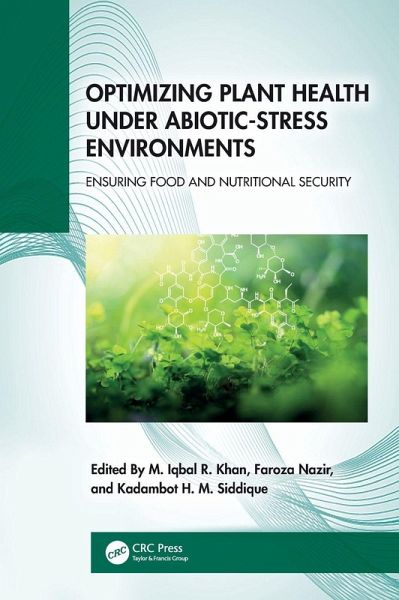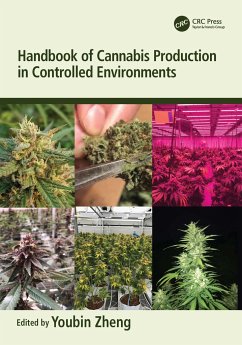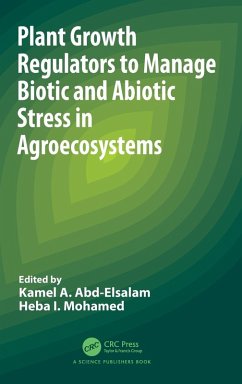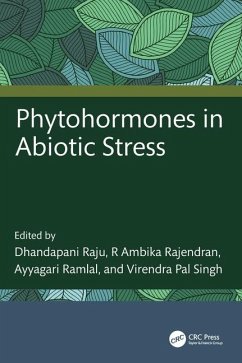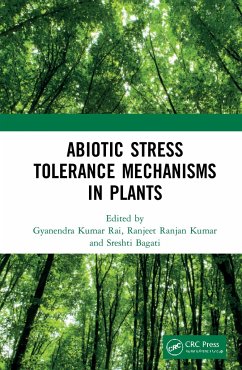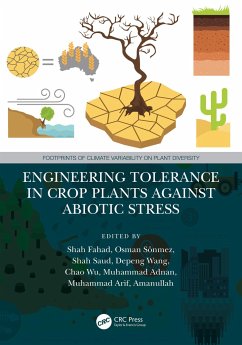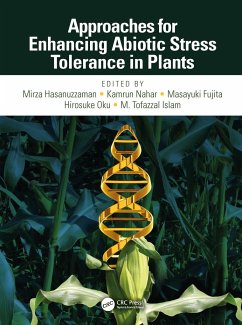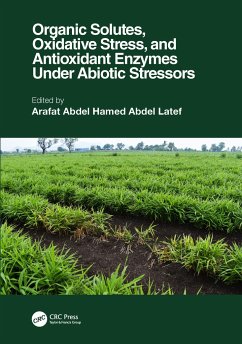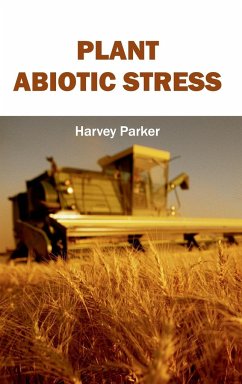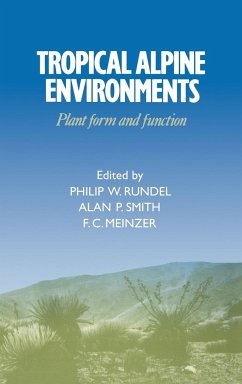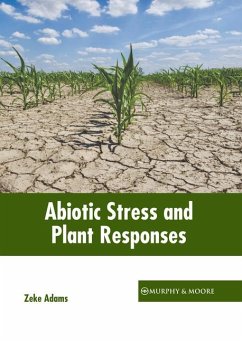Gebundenes Buch
Optimizing Plant Health under Abiotic-Stress Environments
Ensuring Food and Nutritional Security
Herausgeber: R. Khan, M. Iqbal; Siddique, Kadambot H. M.; Nazir, Faroza
Versandkostenfrei!
Versandfertig in 1-2 Wochen
Weitere Ausgaben:

PAYBACK Punkte
70 °P sammeln!




Optimizing Plant Health under Abiotic-Stress Environments: Ensuring Food and Nutritional Security presents a comprehensive review of important mineral nutrients in plants and effective management strategies under abiotic stress environments.
Dr. M. Iqbal R. Khan is an Assistant Professor of Botany at Jamia Hamdard, New Delhi, India. His current research interests are elucidation physiological and molecular mechanisms associated with abiotic stress tolerance. Working on the metabolism of plants under different abiotic stresses, Dr. Khan has found a significant role of phytohormones in the regulation of plant growth and development, have suggested that phytohormones play an important in controlling stress responses, and interacts in coordination with each other for defense signal networking to fine tune tolerance mechanisms. He is also exploring the regulatory role of signalling molecules and their impact on nutrient homeostasis and source-sink relationship under abiotic stresses. Dr. Khan has published more than 100 articles, and has edited 9 books. He has been recognized as Clarivate Highly Cited Researcher in 2022 and 2023, Member The National Academy of Sciences, India (NASI), Young Associates Indian National Science Academy (INSA), R. H. Dastur Gold Medal Indian Society for Plant Physiology (ISPP), India, Young Scientist Platinum Jubilee Award, The National Academy of Sciences, India (NASI), Young Scientist Award Indian Society of Plant Physiology (ISPP), India. Dr. Faroza Nazir is currently working as Post-Doctoral Fellow (DBT-RA) in Jamia Hamdard, New Delhi, India. Her research focuses on abiotic stress tolerance mechanisms, and to decipher the nutritional and hormonal signaling pathways for developing resistance in plants. She has found a significant role of phytohormones and signaling molecules in the regulation of plant growth and development, and abiotic stress tolerance during her PhD tenure. Besides these, she has authored several international publications in peer-reviewed journals and is manuscript reviewer for several plant biology journals. Prof. Kadambot H.M. Siddique is Hackett Professor of Agriculture Chair and Director The UWA Institute of Agriculture. He is recognized internationally as a leader in crop science and agriculture. He has more than 30 years' experience in agricultural research, research training and management in Australia and overseas. He has developed a national and international reputation in agricultural science especially in the fields of crop physiology, production agronomy, farming systems, genetic resources, breeding research in cereal, grain and pasture legumes and oilseed crops. Professor Siddique's publications are considered as key papers in the above fields and are widely cited. These publications include numerous highly cited papers on adaptation, physiology and genetics of crops to dryland environments. Professor Siddique has conducted research on adaptation of crops to water deficits and the phenological, morphological, physiological, biochemical and genetic traits that enable crops to cope with various abiotic stresses. As a result of Professor Siddique's personal research and with others with whom he collaborates, Australia has become one of the major grain legume exporting nations in the world. His pioneering research on chickpea has contributed enormously to the Australian chickpea industry, which is currently valued at more than $300 million per annum.
Produktdetails
- Verlag: CRC Press
- Seitenzahl: 300
- Erscheinungstermin: 7. August 2025
- Englisch
- Abmessung: 260mm x 183mm x 21mm
- Gewicht: 763g
- ISBN-13: 9781032619552
- ISBN-10: 1032619554
- Artikelnr.: 72655368
Herstellerkennzeichnung
Libri GmbH
Europaallee 1
36244 Bad Hersfeld
gpsr@libri.de
Für dieses Produkt wurde noch keine Bewertung abgegeben. Wir würden uns sehr freuen, wenn du die erste Bewertung schreibst!
Eine Bewertung schreiben
Eine Bewertung schreiben
Andere Kunden interessierten sich für



